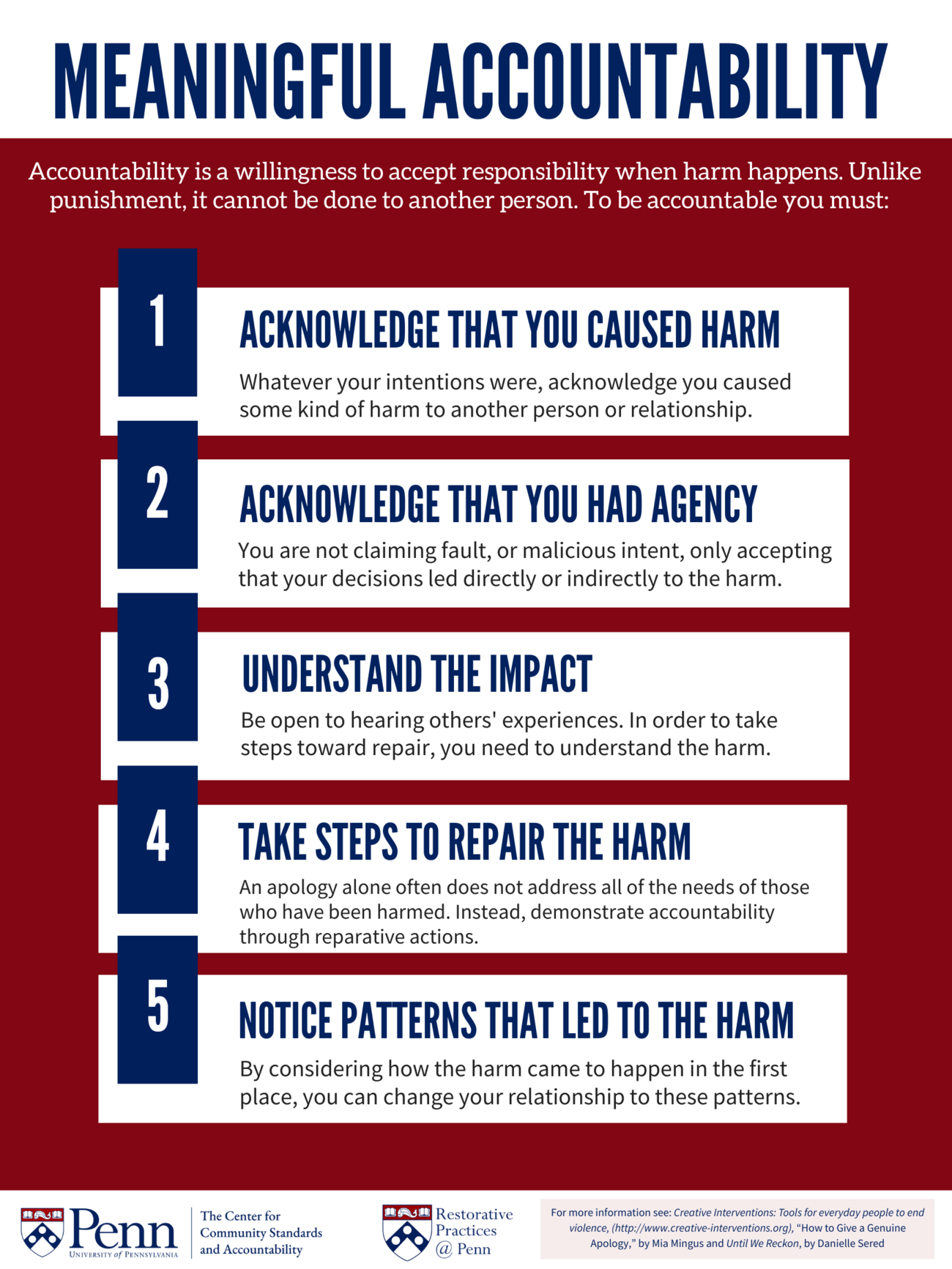Meaningful Accountability
"Accountability" is a word that is used often, frequently as a synonym for punishment. Using a Restorative lens, it is important to highlight that accountability is not something that can be done to another person, it is something that an individual needs to do themself. Restorative Practices @ Penn defines accountability as having 5 stages, as listed below. These stages are not linear, but they do build on each other. Each of us can find times in our own lives in which we have caused harm and could take accountability for our actions.

- Acknowledge that you Caused Harm
-
In order to take accountability, you must acknowledge that whatever your intentions were, something you did caused some kind of harm to another person or relationship.
This stage is very difficult for many of us, because we have both internal and external barriers to acknowledging our own harmful actions. Externally, we can reasonably expect in most situations to be punished if we admit we caused harm. Internally, acknowledging that we caused harm often goes against our own self-image as a good person, which can lead to painful feelings of shame.
-
-
Acknowledge that you had Agency in your Actions
-
Next, it is important to recognize that you made decisions, intentionally or not, which led to this harm. Acknowledging agency is an important part of the accountability process. It is not claiming fault, or malicious intent, only accepting that your decisions led directly or indirectly to the harm, and that you could have made different decisions with different, less harmful, outcomes.
-
-
Understand the Impact
-
Understanding the impact of your actions is essential if you are going to take steps to make repair. This is one reason why so many restorative processes involve an "encounter" (either direct or indirect) between the person who caused the harm and the person who was harmed.
-
-
Take Steps to Repair the Harm
-
This is one of the most critical steps of meaningful accountability. An apology alone often does not address all of the needs of those who have been harmed. Danielle Sered of Common Justice calls this stage "doing sorry" - in other words, this is an opportunity to demonstrate accountability through reparative actions.
-
-
Notice Patterns that led to the Harmful Decision
-
In this final stage of meaningful accountability, you must consider how the harm came to happen in the first place. It is sometimes said that the only true apology is changed behavior. By noticing the patterns that led to the harm, you can change your relationship to these patterns and hopefully lower the chances that you will find yourself in a similar situation again.
-
For more information see Creative Interventions: Tools for everyday people to end violence, (http://www.creative-interventions.org), Mia Mingus’ “How to Give a Genuine Apology,” and Until We Reckon, by Danielle Sered.

